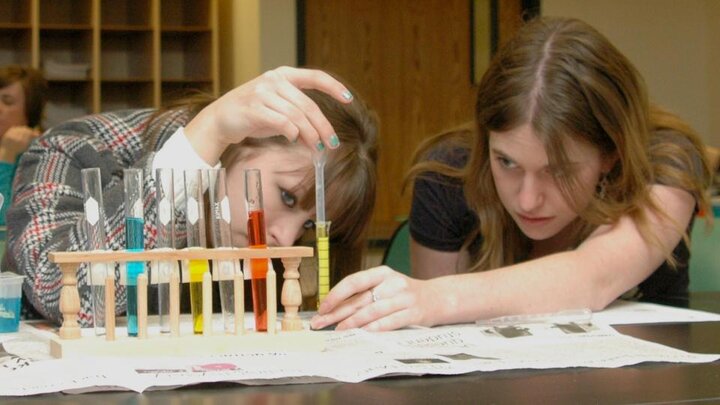"Women in Science: Challenges to Gender Equality, " addressing gender disparity in science-related fields and provide personal accounts of being a woman in science.
- 6-8 p.m., Nov. 11 in the Hardin Hall auditorium (Room 107)
- Free and open to the public
- Refreshments at 5:30 p.m., free parking
- hosted by UNL's School of Natural Resources
"Less than fifty percent of those earning doctorates in almost all science fields are women, and the percentage of women in engineering fields has recently reached a plateau or declined," said Jasmine Mausbach, a sophomore environmental restoration science/environmental studies/Spanish triple major. "Additionally, after obtaining degrees, more women than men leave science and engineering, meaning fewer women hold influential leadership and tenure-track positions."
Mausbach said she was motivated to help organize the event because gender disparity in science-related fields is an important issue that "needs to be addressed."
"And I'm a woman in science, so it hits close to home," she said.
Speakers include:
- Tala Awada, associate director of the Nebraska Agricultural Experiment Station
- Jenny Dauer, assistant professor of practice in science literacy
- Dana Divine, survey hydrogeologist
- Christine Haney, environmental studies program coordinator/adviser
- Patricia Wonch Hill, research assistant professor of sociology
- Mary Anne Holmes, professor of practice and director of ADVANCE-Nebraska
- Karrie Weber, assistant professor of biological sciences
- Donna Woudenberg, post doctorate drought management specialist and lecturer in women’s and gender studies
"Guest speakers will discuss gender inequities that exist in the science-related fields of academia, as well as share personal accounts of their career paths," said Ashley Alred, SNR graduate student and seminar co-organizer. "The goal is to shed light on these issues to a general audience of undergraduates, graduate students, faculty and staff to get a collaborative, productive conversation started about gender inequality."




